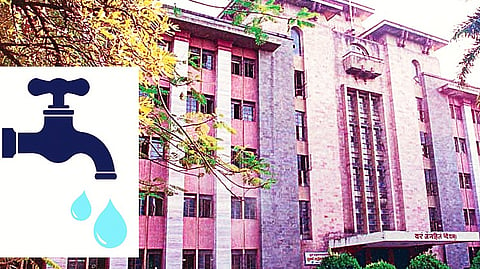

Pune Municipal Corporation (PMC) has sealed an RO project in Dhayari after detecting a bacterium linked to Guillain-Barre Syndrome (GBS) in the water supply. A meeting between project operators and PMC officials was held today to discuss the issue.
PMC has laid down strict conditions for reopening, including mandatory maintenance, certification of water quality as per World Health Organization (WHO) standards, and the installation of independent chlorination systems at each site.
Why Were the RO Projects Sealed?
PMC had earlier sealed 30 RO plants across Dhayari, Nanded, and Kirkatwadi due to unsafe drinking water. Despite political pressure to lift these bans, PMC stood firm on its decision. Following discussions with project operators, PMC has allowed reopening under strict conditions.
Conditions for Reopening
Machine Reassessment: The company responsible for the purification system must inspect and repair its equipment.
Independent Chlorination Systems: All RO plants must install a separate chlorination unit to ensure safe water purification.
Certification Requirement: The water quality must meet WHO standards, and the responsible company must provide certification confirming compliance.
Strict Monitoring: PMC will issue a guarantee letter, and any violation of conditions will result in permanent closure.
City-Wide Regulations for RO Water Supply
RO-based water supply has increased in Pune over the past few years, but many operators are unregistered with PMC. The detection of GBS contamination has raised concerns about water quality in these facilities. As a result, PMC is set to introduce city-wide regulations. Initially, the rules will be enforced in areas where contamination has been found, followed by a phased expansion to other parts of the city.
Water Testing and Approval Process
PMC health inspectors and plant operators will jointly collect water samples, which will be tested at a state government laboratory. RO plants will be allowed to resume operations only after receiving approval from the municipal commissioner.
Nandkishor Jagtap, Head of Water Supply Department, PMC: "Water quality must comply with WHO standards. PMC health inspectors and plant operators will jointly collect water samples, which will then be tested in a state government laboratory. Only after the commissioner’s approval will the plants be allowed to resume operations."
